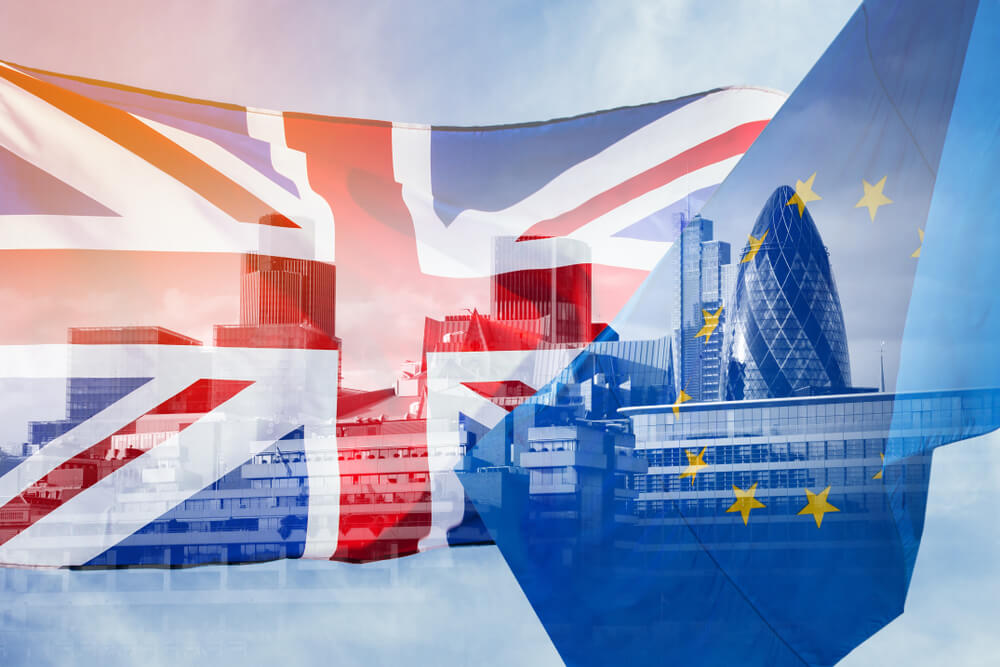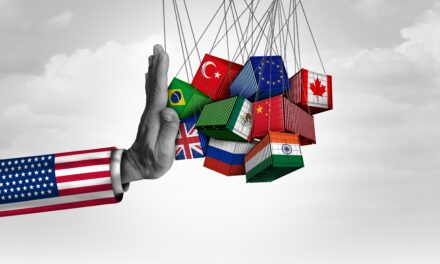The British government and senior opposition figures met Thursday to seek a new plan on how the country leaves the European Union, as Prime Minister Theresa May tried to limit divisions within her Conservative Party inflamed by her shift toward compromise.
May faced fury from anti-EU Conservatives after she agreed to talks with Labour Party leader Jeremy Corbyn, who favors a softer form of Brexit than the plan advocated by the government. Two junior ministers have resigned, and more could follow.
May and Corbyn met for two hours Wednesday, with both sides calling the talks “constructive.” Government and Labour teams held more detailed discussions Thursday.
The cross-party talks are risky for both the Conservatives and Labour, with each party split down the middle over Brexit.
Labour is formally committed to enacting the voters’ decision to leave the EU, but many of its lawmakers want a new referendum that could keep Britain in the bloc. They will be angry if the party actively helps bring about the U.K.’s departure.
Others in the party — especially those from areas that voted strongly to leave the EU — are adamant Brexit must not be halted. Twenty-five Labour lawmakers wrote to Corbyn on Thursday to urge him not to push for a second referendum, saying it would “simply divide the country further and add uncertainty for business.”
Pro-Brexit Conservatives, meanwhile, are angry at the prospect of a softer Brexit that keeps Britain bound closely to EU trade rules and standards.
Treasury chief Philip Hammond said both parties needed to be flexible to break the Brexit impasse.
“When you enter into a negotiation like this to find a compromise way forward, both parties have to give something up,” he told broadcaster ITV. “There is going to be pain on both sides.”
The political paralysis over Brexit has left Britain facing a possible chaotic departure from the EU in just over a week.
After U.K. lawmakers three times rejected May’s agreement with the bloc that was struck late last year, the EU gave Britain until April 12 to approve a withdrawal plan, change course and seek a further delay to Brexit, or crash out of the EU with no deal to cushion the shock.
Economists and business leaders warn that a no-deal Brexit would lead to huge disruptions in trade and travel, with tariffs and customs checks causing gridlock at British ports and possible shortages of goods.
European Commission Vice President Jyrki Katainen said that “following the latest developments, a no-deal scenario is highly likely.”
“Let there be no doubt whatsoever a no-deal scenario would be extremely costly and disruptive,” he said in Brussels.
British lawmakers desperate to avoid a chaotic exit have seized control of the parliamentary agenda to pass a hastily drafted bill that compels May to ask for an extension to the Brexit deadline if a no-deal departure is looming.
The bill was approved by the House of Commons late Wednesday by a single vote and was being debated Thursday in Parliament’s upper chamber, the House of Lords.
Pro-Brexit lawmakers condemned the bill as an attempt to frustrate Brexit. Conservative Brexiteer Peter Bone said it “was a total farce and it was an abuse of Parliament.”
Anti-EU members of the House of Lords were expected to filibuster and use other delaying tactics to try to impede the progress of the bill through the upper chamber.
Dianne Hayter, Labour’s Brexit spokeswoman in the Lords, said she was willing to debate all day and night if needed.
“If that’s what it takes to do what the elected House of Commons asked us to do, that is what we will do,” she said.
If the bill passes into law, May will have to go to a special EU Brexit summit in Brussels on April 10 to seek a delay.
The EU is not compelled to agree. Leaders of the bloc, exasperated by the chaos in London, say they will only grant a delay to Brexit if Britain comes up with a workable new plan.
French President Emmanuel Macron, one of the leaders most resistant to a further Brexit extension, has warned that the bloc can’t be held “hostage” to Britain’s crisis.
Worries about a no-deal Brexit are especially acute in Ireland, the only EU member state to share a land border with the U.K. Any customs checks or other obstacles along the currently invisible frontier would hammer the Irish economy, and could undermine Northern Ireland’s peace process.
German Chancellor Angela Merkel was in Dublin on Thursday for Brexit talks with Irish Prime Minister Leo Varadkar.
With passions running high both inside and outside Parliament, police warned politicians to tone down their rhetoric.
Martin Hewitt, chairman of the National Police Chiefs’ Council, said the mood was “incredibly febrile.”
He said individuals with a public platform had a responsibility to speak in a way “that is temperate and is not in any way going to inflame people’s views.”
The crisis has produced a week of high — and sometimes surreal — drama in Parliament. On Monday, climate change protesters stripped almost naked in the public gallery as lawmakers debated Brexit.
On Wednesday, a vote in the House of Commons ended in a tie, for the first time in a quarter of a century.
And on Thursday, debate in the Commons was suspended after water from a leak began pouring through the ceiling into the chamber below. Lawmakers were later sent home for the day as maintenance staff assessed the damage.
© The Associated Press. All rights reserved.




